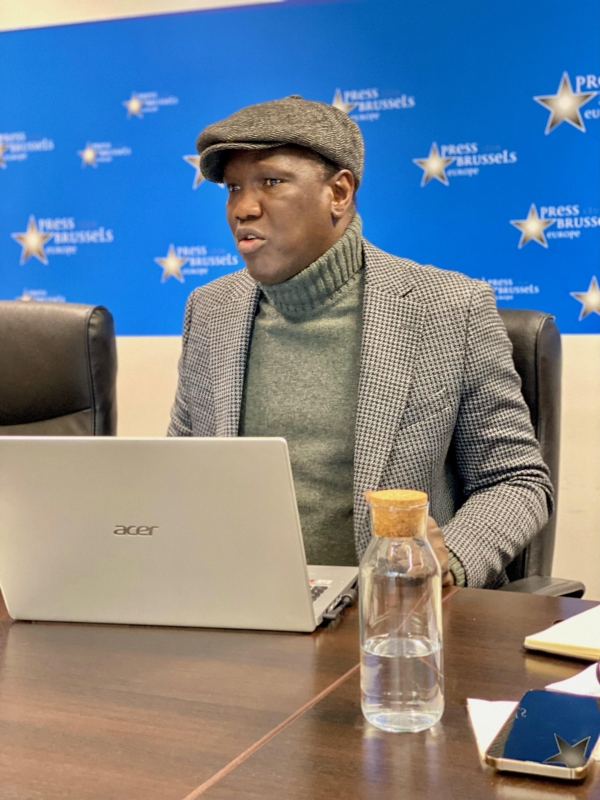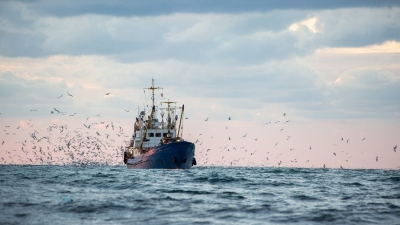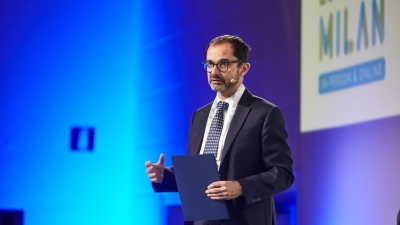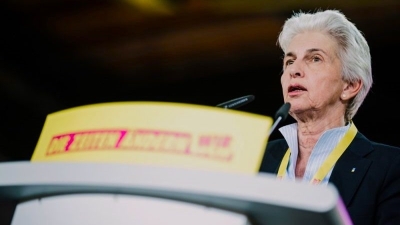EU and international community, including media, urged to ‘wake up’ to ‘genocide’ in Sudan

The event, at the city’s press club on 23 November, heard that "hundreds" of innocent people are being killed on a daily basis but the international community has remained relatively "silent" in its condemnation of the atrocities.
The EU and Europe may yet regret such alleged "indifference" if the fighting spills over into neighbouring states and sparks another wave of migration to the EU, the debate heard.
Sudan is in north-east Africa and is one of the largest countries on the continent, covering 1.9 million square kilometres and recent fighting has swiftly escalated in different parts of the country with more than 400 civilians dying, according to the World Health Organization.
Sudan’s Rapid Support Forces, RSF, a Sudanese-Arab militia, is blamed for more than 50 days of attacks on the city’s majority ethnic African tribe.
The RSF is a paramilitary force drawn largely from Arab groups, and allied Arab militias known as Janjaweed. It was formed in 2013 and has its origins in the notorious Janjaweed militia that brutally fought rebels in Darfur, where they were accused of ethnic cleansing. The RSF has been accused of human rights abuses, including the massacre of more than 120 protesters in June 2019.
AdvertisementThe UK, US and EU have all called for a ceasefire and talks to resolve the crisis and many countries are now focused on trying to get their citizens out.
N’Diaye said, "You wouldn’t know it from the news, but Sudan is sliding into the jaws of genocide."
He said there was a "strange silence" from the international community and, in particular, the world’s media about current events in the country.
Over 27 towns have been massacred in recent weeks and thousands slaughtered with families murdered, bodies rotting outside, and mass graves appearing on satellite imagery. Women and children, he said, were among the victims.
He said: "It’s already being called a genocide. But these mass atrocities are not in the news, and the world does almost nothing.
"The scale of Sudan’s crisis is staggering."
The event was organised by the respected Brussels-based policy institute European Foundation for Democracy and opening the discussion,Roberta Bonazzi, from the EFD, noted that the attendance was well down on that normally expected at its debates.
"This is a sign of the indifference towards this conflict and genocide," she told the small audience."
She added: "This silence is extremely remarkable because there is a genocide happening against an ethnic minority that is being systematically eliminated and slaughtered.
"In spite of the gravity of the situation there are barely any voices speaking out against it apart from a recent statement from the European External Action Service. There has been little or no media coverage.
"What is also interesting is the few number of participants today which is telling."
In a keynote address, N’diaye, whose work focuses on geopolitics and the history of regions, outlined current events and his assessment of the "media silence".
He said: "It is terrifying to see what is going on and the fact that nothing is being done to talk about all these murders.The aim seems to be to eliminate an entire ethic group and thousands are being killed every day including children and women.
"The question is: why the silence by the international community? We see or hear nothing — just total silence and this is disturbing not least when you see huge media coverage of Ukraine and Israel-Hamas in the mainstream media. No one says anything."
"I ask myself: How do we make this problem known to the rest of the world?
"The number of of people dying is 3 to 4 times bigger than in other conflicts and is estimated that the figure could be 300,000 over the past 20 years.
"From time to time we do get some coverage but, even then, the focus is more on the economy than genocide which is another kind of injustice to the ethnic minority under attack."
He was asked to explain what may be behind the apparent media indifference and, on this, he said that one possible reason is that working for the media in Sudan "is very difficult."
The few in the media who do try cover the issue are probably located on the border or outside the country, he said. "But people are being killed and starving and no one is paying attention."
"One problems is that West Sudan is like a no man’s land, with poor infrastructure and facilities, so it is hard for a foreigner to go there and do their job properly. That is a difference with, say, Ukraine. The war in Sudan is a war of poor people."
Another possible reason for such "silence" in the international community is the absence of a functioning civil society or media in the country.
"A strong civil society is very important in a democracy but this does not exist there on anything like the same level as elsewhere.
"Civil society in Africa barely exists as we know it in the West and there is no altruism or philanthropy either. There is no big movement to say: we have to stop this and do something"
When asked by this site about seeming Western indifference, he said "Yes, you have to ask if the world really cares about Africa? It is a huge continent but it seems that, year after year, we just see one government toppled by another and countless coups. This is the perception and the problem we face in Africa generally."
He added, "But we still have to do something and there is a lot we can do to bring some kind of justice to those affected. One thing that could happen is for the international community to rethink its approach to Sudan and Africa in general."
Looking to the future, he suggested another option could be to "mobilise" those Sudanese people who have left the country.
"There is a South Sudanese diaspora in Europe and, while they want to start a new life, it could be that they can help raise awareness of the current issues."
He warned, though, that Europe, with a "focus on internal security", may only become fully engaged if its own borders were to come under threat from current events in Sudan.
"If the problems in South Sudan spills over to its immediate neighbours that in turn could lead to a major migration issue for Europe so, yes, it is in Europe’s interests to do something and act now."
Share this article:



